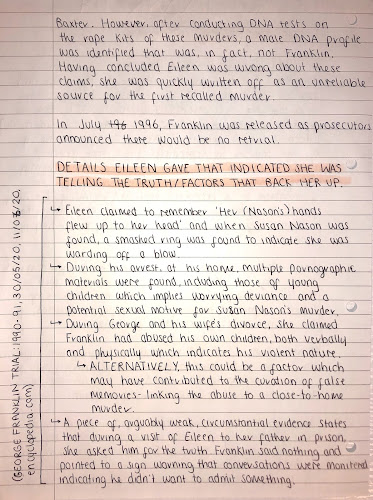Case Study- George Franklin: Cold murderer or a Figment of a Memory?
Two hugely impactful research points within psychology often clash: false memories, and the recovery of real, repressed memories. Both are very real phenomena and one does not prove the other wrong. Though, oftentimes it is hard to distinguish whether a person has fabricated a false memory or recovered a repressed one. This means that the pure existence of one theory tarnishes the credibility of claiming the other.
Here is the collection of research I have put together on the case of George Franklin, an accused rapist and murderer by his own daughter, which includes both the defending and accusing sides of his case as well as the opposing arguments of his daughter‘s repressed memories or arguably false memories.
Whether or not Eileen Franklin-Lipsker‘s hypnotherapy induced false memories, speculating the theory does help further research into the topic. The George Franklin case came prior to Elizabeth Loftus carrying out further experiments.
This is a controversial case to cover due to the sensitive context of the accusation. It is unfortunate that the verdict of this case comes down to subjective opinion on whether George Franklin is innocent or guilty. One can hope that in the development of research into the two parts of memory research, it will become easier to distinguish between the two.
This does highlight a new point in this topic for me though- if this trial turned out to be a case of recovering repressed memories, claiming it to be false memories could be so psychologically harmful to a victim. It proves that the term cannot be thrown around lightly without backed up reason to suggest false memories as it may discourage those with repressed sexual trauma in coming forward.





Comments
Post a Comment